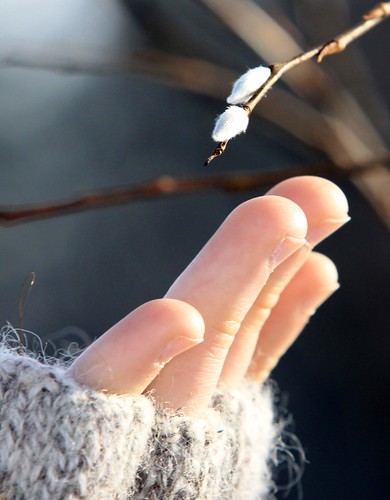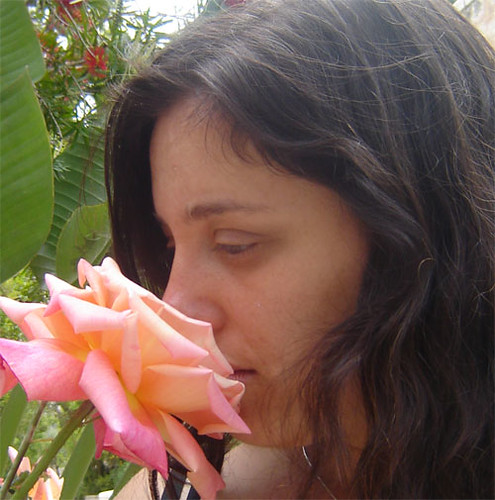Smelling Through Your Fingertips
A fascinating BBC article (with a photo of what first looks like very hungry pairs of multi-fingered hands) about scientific findings about the sense of smell left me quite philosophical. Researchers discovered that scent receptors that are supposedly responsible for our sense of smell are not unique to the olfactory bulbs. The same type of receptors were found in the kidneys, heart, lung, gut and even in the tiny blood vessels in our skin!
The scientific implications of that are a better understanding of the interactions of various environments in our body, and how these work together to reject and eliminate toxins (as is done in our blood-filtering organs, the kidneys), pushing away foreign objects from our airway systems, and work in harmony with the the colonies of bacteria in our digestive system, are just among the discoveries described in this article.
These are fascinating discoveries, and I'm certain that down the road (and perhaps not that far from now), there will be some applicable medical and technological uses for this fascinating discovery. At the same time, to me personally this is yet another layer of knowledge that only confirms what I've been learning throughout my perfumery work and my personal experience with the sense of smell and how it relates to emotions.
The part that truly hit home for me is that these "smell receptors" are really chemical-sampling cells (which is how we've evolved from single-cell organisms like amebas to the complex creatures we are now), and their job is not limited to the brain (which the olfactory bulbs are part of). It makes sense to me just in the same way that we experience emotional pain in our brain like physical pain; and in extreme emotional pain, it will be felt in the body as well, as if every fibre of one's being, to the last skin cell, is achingly tortured. How we interact with our environment has everything to do with how we evolved to be an interactive part of our environment. Emotions, smell and the tactile world are connected because this is how we "feel" life. Unlike the "higher" senses of sight and sound, these are very "hands-on" senses, that require a direct contact with a surface or a substance to be experienced, and that's what the cells or receptors need to be activated.
Our environment is not only external but also internal. So it only makes sense that we sense inside our bodies, and not just form the outside. Taking into account the internal milieu of emotions, it only makes sense that when we feel sad, angry or scared, there will be a change of chemicals in other organs besides our brain - the taste in our mouth becomes bitter when we are terrified, so why won't it became sour (perhaps) in our bellies when we are angry? And how much of our interpersonal interactions are actually through sounds (words and tone) or visual (facial expression) and how much of it really is all about the chemicals we transmit through a handshake?
It seems to me that even with not very intimate relationships, the experience of smell and touch that accompanies them communicates a lot more through this ability to "sample chemicals" from the environment. We can communicate a lot more through a handshake and the subconciously-perceptible scent we are emitting when we are feeling sad, happy, angry, disgusted or scared.
I'd be curious to hear what aromatherapy practitioners think about this. We already know that essential oils absorb readily through the skin into the blood stream and find their way with ease to the organ that needs healing. Do you reckon that the smell receptors in our skin and other organs have anything to do with aiding this process? And what about anosmiac people? Do they have less smell receptors in other areas of their bodies, or smell receptors that are less effective? My mother has a rare syndrome whose one of its symptoms is susceptibility to lung infections, and one of the unfortunate side effects is anosmia. Reading in this article the role this smell receptors have in assisting the cilia in the lungs to identify foreign bodies in the lungs and rid the lungs of them makes me wonder what happened first - the cilia's dysfunction, or does it have anything to do with smell receptors?
Labels: Must Read, Olfactory Science, Scientific Discoveries, Sense of Smell, Smell Receptors









